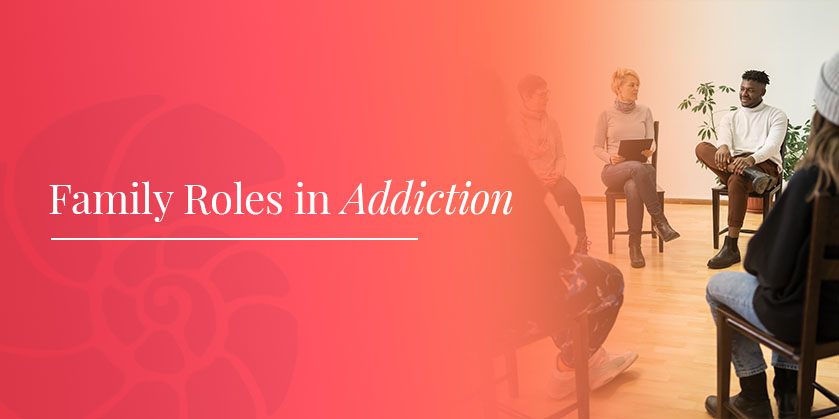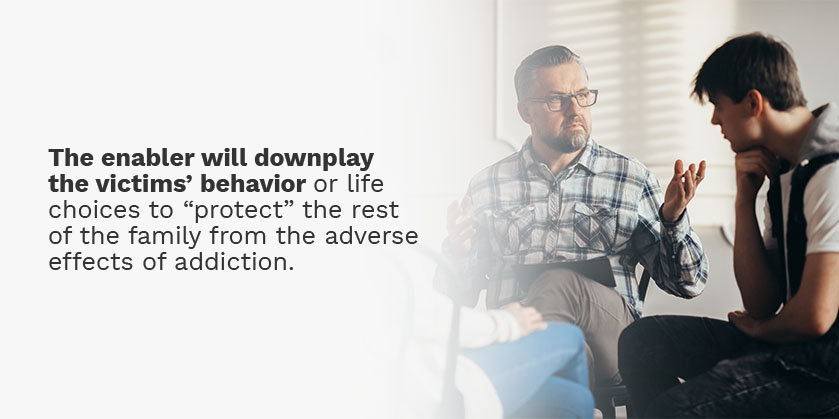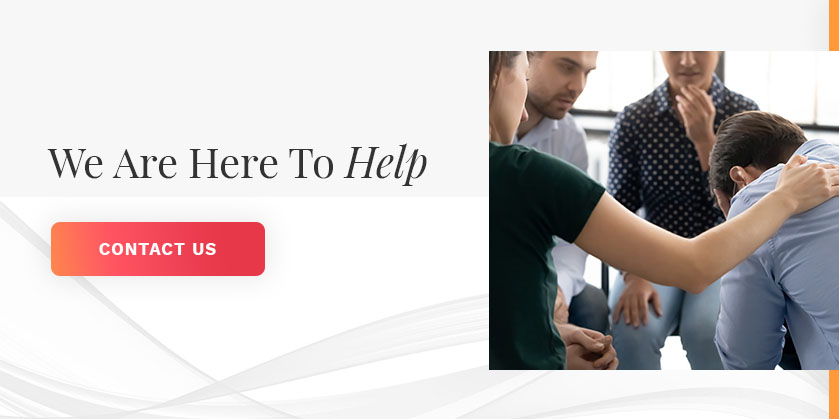Family Roles in Addiction
Substance abuse is a disease that can affect an entire family. When you’re living under the same roof with someone struggling with an addiction to drugs or alcohol, you’ll navigate an unpredictable world filled with many uncertainties. You might also have trouble knowing where to turn for help.
Unique family roles can pop up in the event of addiction, which may worsen the situation. To understand how this disease manifests itself, we’ll discuss the family dynamics of addiction below and provide addiction recovery information and resources for you and your loved ones.
Victim or Addict
Family dynamics are affected by at least one victim of addiction. People struggling with substance abuse live in a constant state of chaos, and drugs may become their primary way to cope with emotional issues. Victims display negative behaviors or symptoms that might include:
- Lack of motivation
- Confusion
- Irritability, anxiety or paranoia
- Rapid or rambling speech
- Shakes, tremors or slurred speech
- Dilated pupils
- Mood swings
- Lack of personal hygiene
- Bloodshot eyes
The victim might display anger and avoidance behaviors as they find it harder to manage their mood swings. They’ll often show dependent behaviors such as manipulating or lying to supply and sustain their addiction. There are Family Roles in Addiction.
Over time, the victim will become the focal point of the family while other members attempt to deal with their behavioral choices and life changes. The victim might isolate themselves or blame other family members for their problems, negatively affecting those around them.
The Scapegoat of the Family
The scapegoat of the family is often the one who gets blamed for the family issues caused by addiction. Most commonly the middle or second oldest child, the scapegoat exhibits deviant behavior and hostility to divert attention from the victim.
The scapegoat will often lash out and voice the family’s collective anger. They’re also more likely to participate in risky behaviors, so parents focus on their punishment rather than deal with the scary and unpredictable world of addiction.
The scapegoat also distracts family members from internal blame and resentment surrounding the victim’s addiction issues. When scapegoats get older, they’ll find it harder to manage their emotions and may display avoidance behaviors by running away or acting out in violence.
The Enabler
The enabler will deny that there was ever a problem in the first place. They’ll downplay the victims’ behavior or life choices to “protect” the rest of the family from the adverse effects of addiction. They’ll convince themselves that substance abuse isn’t a real issue and make light of the situation by excusing their loved one’s behavior and fueling the addiction.
The enabler has difficulty creating boundaries with the family member who suffers from addiction. They’ll let problems go unchecked rather than deal with them straight away. While they may not realize it, the enabler can assist in the self-destruction of the victim by:
- Treating an adult victim like a child and making excuses for their behavior.
- Giving them money to pay for necessities rather than allowing them to pay for their own.
- Ignoring harmful behavior and not addressing how it’s affecting the family.
- Helping the victim obtain their substance of choice.
This role is often filled by the victim’s spouse or even a child of the family. They often believe they’re helping the family or victim when in reality, their reaction creates a more significant issue by making it difficult for everyone to heal. Family Roles in Addiction.
The Hero of the Family
The hero of the family tends to be controlling and perfectionistic. They achieve many successes to give their family the illusion that all is well. Often seen as over-responsible and self-sufficient, they’ll also attempt to make decisions for the family behind closed doors.
The hero will feel like the leader of their siblings, though, over time, they’ll find it challenging to manage the stress and anxiety that comes with this role. The hero might also attempt to overshadow the victim and be the center of attention, derailing recovery efforts.
The hero believes they are the only one who can solve the victim’s problem. They’ll often harbor ill will toward the victim as they attempt to establish themselves as the focal point of the family and solve family drama. The hero harms rather than helps the situation by making it more difficult for the family to work toward recovery. Family Roles in Addiction.
The Mascot
Often the youngest sibling, the mascot is the comedian of the family. They’ll typically use humor to resolve family tension, which might come from a place of fragility and a desire for approval from those around them. Employing constant humor might also result in their inability to deal with confrontation or express their emotions.
Supplying comic relief helps the mascot shield themselves from the pain associated with negative family dynamics. Fear, sadness and feelings of vulnerability plague this person as they conceal their emotions by cracking jokes and making light of family arguments. While their humor may lighten the mood, the mascot distracts the family from solving deep problems.
Due to their deep-seated issues, mascots tend to self-medicate as a coping mechanism. This can continue into adulthood and perpetuate the addiction cycle.
The Lost Child
Typically the youngest or middle child, the lost child is uninvolved in family relationships. They’ve likely never received the same level of attention as their siblings, which makes them go virtually unnoticed when there’s an addict in the family.
When this child stays lost, they learn their needs don’t matter and hiding becomes a way of life. They’re shy, withdrawn and commonly depressed for most of their childhood as they use invisibility as their defense.
The lost child often grows up feeling inadequate. They’ll blame themselves for the lack of attention they received growing up and believe that something is inherently wrong with them. This makes it challenging for them to form intimate and lasting adult relationships, and they may self-harm or become involved in abusive relationships. Like the mascot, the lost child might also turn to self-medicating as a way to cope.
If You’ve Noticed These Dynamics Within Your Family, We Are Here To Help
As you’ve learned, addiction significantly affects the victim and those around them. If your family is struggling with the effects of addiction, we’re here to help.
Transformations By The Gulf is a wellness center that provides substance abuse and alcohol addiction recovery services. Our residential and outpatient programs emphasize compassion, honesty and self-accountability through the path to recovery.
We understand the complexity of addiction and design custom recovery plans for each individual to help them achieve a better quality of life. We also provide family therapy to navigate you through the challenges and unpredictability of an addictive household.
To learn more about our services, contact us today.
If you or someone you know would like to know more about Transformations by the Gulf Substance Abuse Treatment Center Give us a Call 24/7 (727)498-6498
The success of a person’s recovery depends on the level of personalized treatment provided. It is important to find an addiction treatment program that works. When we say our treatment is individualized, we mean that we craft a program that is tailored to address the client’s unique physical, mental and emotional needs.
In the client’s first 24 hours with us, we’ll evaluate their current state and work to understand what challenges they need to overcome. They’ll also have an initial session with our doctor and meet with one of our licensed mental health professionals.
After the initial evaluations, we’ll design a treatment plan with the sole mission of helping the client overcome and heal from addiction. Their program will focus on things such as:
- Addressing and Identifying root causes of addiction.
- Creating a support system.
- Developing healthy stress management techniques.
- Eliminating Substance use.
- Learning how to communicate emotions effectively.
- Maintaining a healthier lifestyle.
- Repairing damaged relationships.
Our Facility is near the beach and offers a comfortable setting for substance abuse treatment and recovery.
What a Day is Like in Our Treatment Facility.
Why Transformations by the Gulf?
You can also find out more information about Transformations by the Gulf by visiting Rehabs.org


